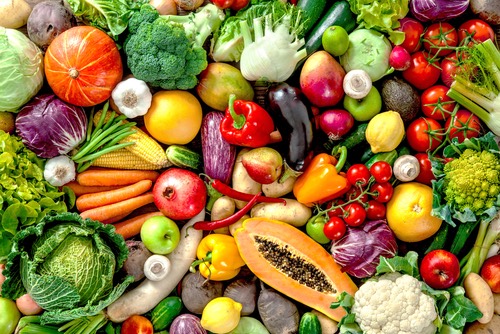Everyone’s metabolism and life style are unique, so specific necessities for macronutrients might look different from one another.
But one fact remains: we all need them.
Macronutrients are carbohydrates, proteins and fats. Macronutrients are big players and our body needs a large amount of them. Assuring that we replenish all macronutrients is crucial, specially when the demand of energy on our body is high. So restricting these nutrients can impact important body functions and prevent us from feeling our best.
Even though our body can be very resilient and adapt under less than ideal conditions, it might not be very functional, meaning it can be overworking one function to compensate the lack of other functions. For example, a diet high in protein and fat might help you go through fat storages more efficiently and build muscle, but it will potentially make your liver work harder, since it is the organ that deals with fat breakdown. We might only feel the consequences over time, manifesting as a symptom or eventually a disease. Specific diets like keto, for example, are made for specific situations, where protein and fat need to be the big players for a certain health situation. I call them healing diets, because their purpose is to aid a condition.
Most diets are meant to be followed for a period of time, short-term instead of long-term and while one might thrive on certain nutritional habits, others won’t. Here, our genes can play a huge role, but in fact, all macronutrients matter, regardless. Balance is key! MICROnutrients like vitamins and minerals will come along with the macros, so counting or supplementing them is not necessary if we have a balanced diet and good health overall. Our body likes variety and it knows how to get the best out of the foods we eat, that’s why mother nature created tons of different types of legumes, vegetables, and fruits, because molecule composition is different in each food for a purpose.
Proteins, for example, have different types of amino acids that serve different functions in our body, making muscle or hormones. The carbohydrates are converted into glucose to be immediately utilized by our cells to make energy, or stored as glycogen to be used in the future. Fat is a macronutrient as well, a big player, but unfortunately it seems to be underrated, when it’s as important as carbohydrates and proteins, and plays important roles in energy storage and hormone production.
Nutrient Variety
Nutrient variety is beneficial to the microorganisms living in our gut as well, that have a very important job in health maintenance. When we get diversity of nutrients, we are enabling our body to nourish even the little shortages, recover and build more efficiently. Supplements will not replace real food, but can be very helpful if properly managed, in assisting to bring our body back to balance.
So the biggest take aways here when it comes to getting macronutrients are VARIETY and BALANCE.
WHAT CAN YOU DO?
You can start implementing it to your diet by simply following 2 main rules: to get variety, aim for a colorful plate, and to get a balanced meal, make a plate where 40% of it is carbohydrates, 30% is protein and 30% is fat. Choose the colors of you food purposely and try new foods!




3 Comments